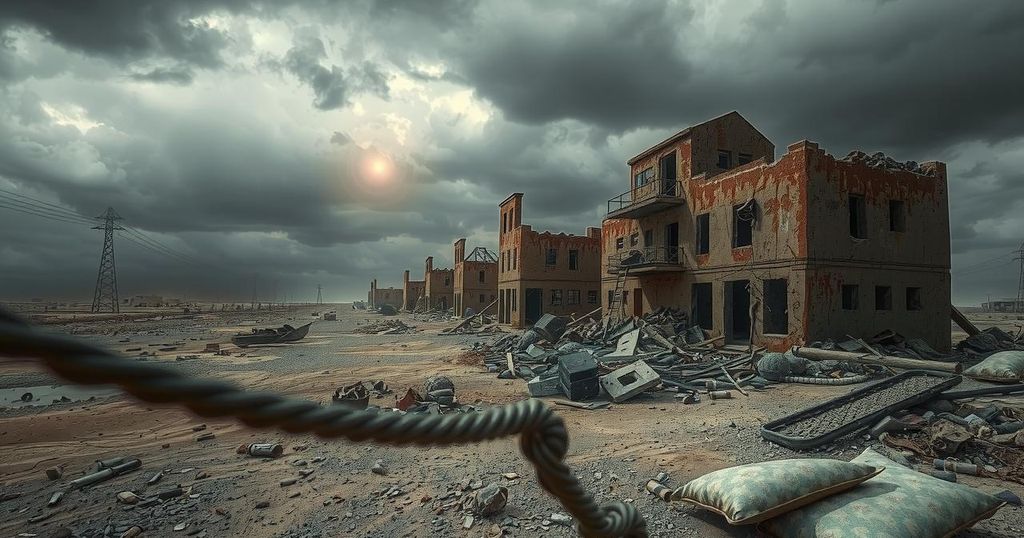The Current State and Future of Sudan’s Civil War
Sudan’s civil war is at a critical juncture, with military advances against the RSF. Recent claims of achieving control in Khartoum indicate further potential division in governance. The conflict, which has led to widespread death and displacement, continues with no clear end in sight and with both factions creating rival administrations, heightening tensions in the region.
The conflict in Sudan is at a crucial point following nearly two years of intense fighting, which has claimed tens of thousands of lives and displaced millions. Recently, the military has made significant headway against the paramilitary Rapid Support Forces (RSF), claiming control of Khartoum, including the Republican Palace. However, the RSF has not confirmed these reported losses, indicating ongoing tensions.
The civil war, which commenced in April 2023, is a product of increasing animosity between military leaders who were once allies during the democratic transition efforts initiated after a popular uprising in 2019. Unfortunately, their alliance deteriorated, igniting a struggle for dominance that led to civil strife. Thus far, the conflict has resulted in at least 28,000 deaths, with the actual figure believed to be higher, and has forced over 14 million individuals from their homes, resulting in widespread famine across regions.
While the military’s recent victory in Khartoum may mark a transitional phase in the conflict, it’s anticipated that the war will continue. The military is likely to consolidate power in its areas of influence, while the RSF maintains control over significant territories, particularly in western Sudan and the Darfur region. There are no indications that Gen. Abdel-Fattah Burhan, the military chief, intends to pursue serious peace negotiations, as both factions remain in conflict.
Additionally, the RSF has established a parallel governance structure through a charter signed in February 2023 in Nairobi, Kenya. This development signals a potential contest for authority, with both the RSF and military claiming legitimacy for their respective administrations. The RSF’s charter advocates for a decentralised and democratic state, addressing the need for various communities within Sudan to seek autonomy and governance.
The formation of the RSF emerged from the infamous Janjaweed militias, historically implicated in severe human rights violations against populations in Darfur. In the ongoing war, the RSF has been accused of further atrocities, prompting the Biden administration to impose sanctions on Gen. Mohamed Hamdan Dagalo, alleging genocide. Both the RSF and the military have denied these accusations, illustrating the complexity and contention within this tumultuous landscape.
In summary, the situation in Sudan remains dire as the civil war continues without an imminent resolution. The military and RSF are engaged in an ongoing power struggle, with Khartoum’s recent capture merely indicative of a potential shift rather than an end to hostilities. The establishment of parallel governments by both factions could further entrench division and complicate peace efforts, raising concern for the future stability and unity of the nation.
Original Source: www.newsday.com




Post Comment